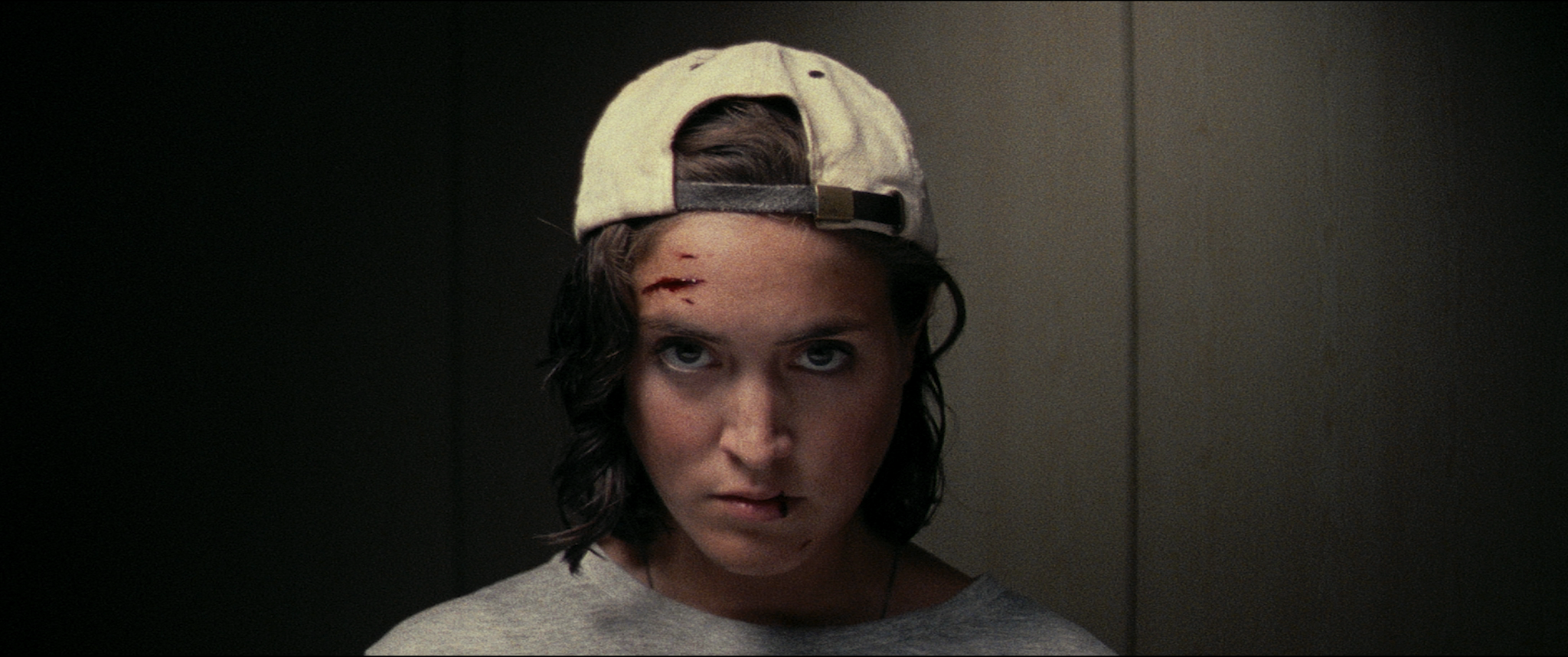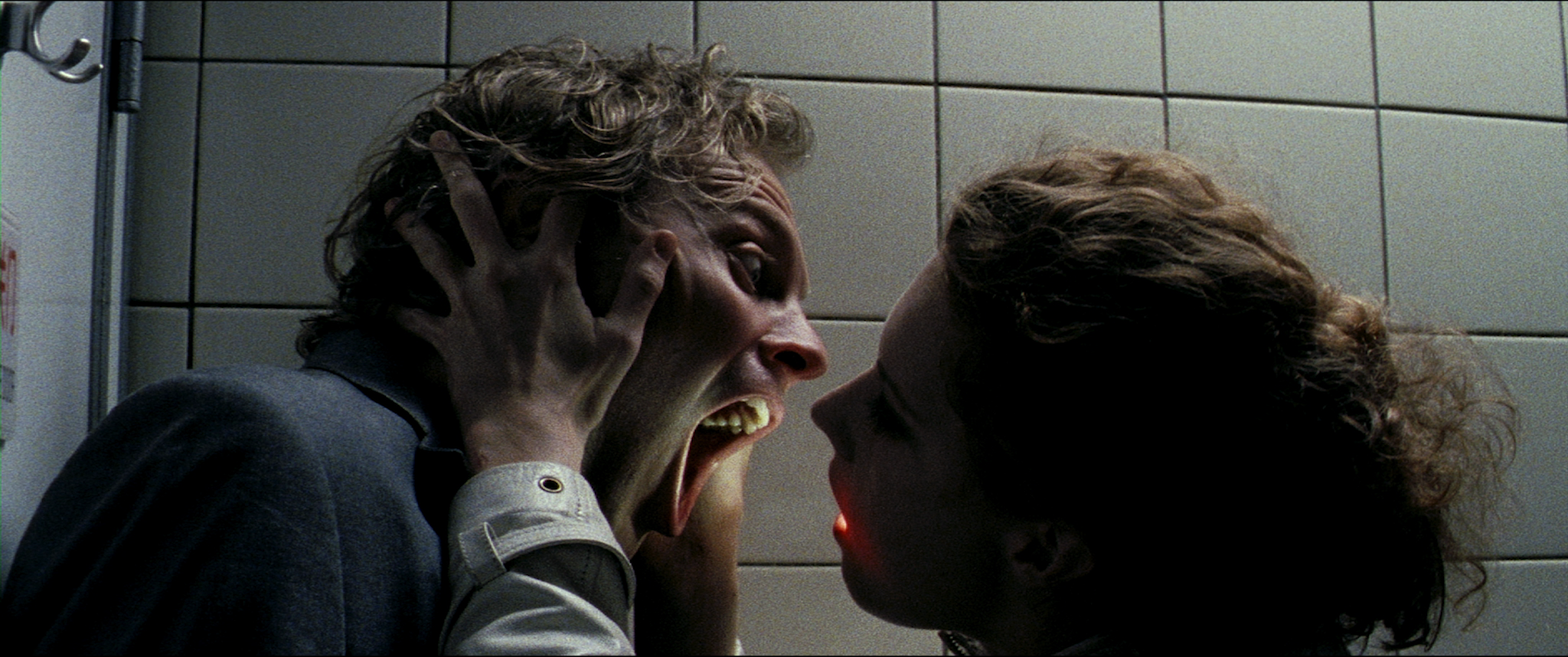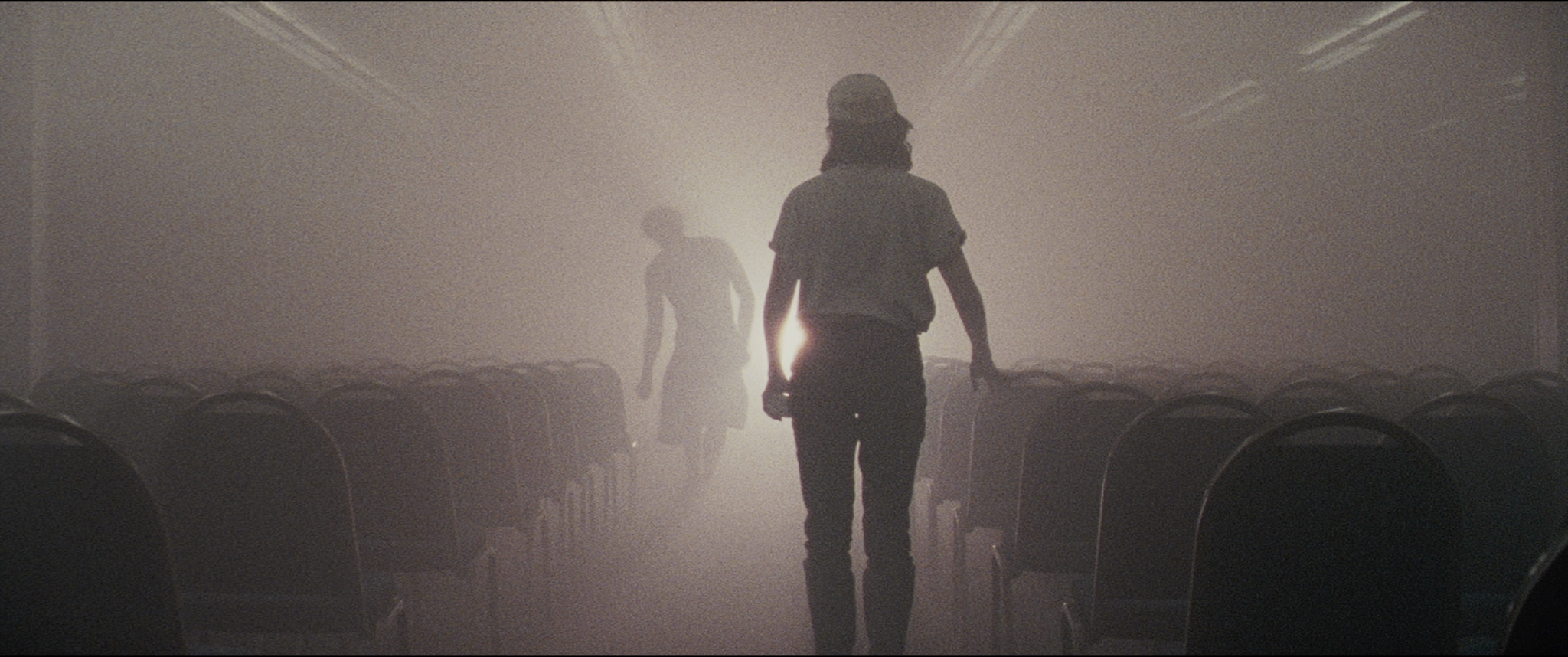LUZ

Starring: Luana Velis, Jan Bluthardt, Nadja Stübiger, Johannes Benecke, Lilli Lorenz, and Julia Riedler
Written & Directed by: Tilman Singer
“Since when do you speak Spanish?”
“Since…it was invented.”
Luz! It’s the classic story of witch-meets-demon. Witch sets aside magicks for a steady job as a cab driver. Witch then accidentally summons said demon back to the worldly plane after bumping into an old enemy from Catholic school. The demon constructs an elaborate plot using police detectives and a boozy therapist as pawns to woo back said witch. He does this with a haunting, Italian horror inspired trek through her memories to clear out past trauma to reignite their blasphemous love affair. You’ve seen it a million times, right?
But jokes aside, Tilman Singer’s debut feature Luz is an absolute belter. Using only sparse makeup effects and containing the plot largely to one (for lack of a descriptor) meeting room in a German police station, Singer turns the “demonic possession” genre on its friggin’ head. Singer uses the genre not to tell another rote story of female domination and punishment, but one of growth, acceptance, and self-actualization, tied together by some bravia performances and constantly mounting dream-like tension. If you see one movie about the lengths a daemon will go to be reunited with the love of its life this year, make it Luz.

So, when I say demonic possession, that conjures up a lot of viscera and bile, right? Well, that’s not Luz, and that’s precisely what makes it such a strong feature. Opening on a lingering, very Giallo-esque shot of a boring police waiting room, writer/director Tilman Singer and the score by Simon Waskow are already lulling you into a dream-like state.
From there, we are introduced to the titular Luz (a magnetic Luana Velis), who has come in to report some kind of crime. At the same time, the second coming of Klaus Kinski, Jan Bluthardt’s Dr. Rossini is having a very odd night out. He has come across an old friend of Luz’s who “needs his therapeutic advice” to get through to her friend. What follows is the most insane single session of hypnotherapy I have ever seen.
From the film’s inciting incident, Singer kicks into high gear, staging the rest of the film around a stagey, dual-language “hypnosis”–one in which the doctor puts Luz under to get to the bottom of the crime she wants to recount. I am hesitant to give too much away. Bluthardt and Velis, supported by Julia Reidler’s Nora (Luz’s “old friend”), absolutely blow the doors off the place, bringing to life this nightmarish recollection,g iven a few pulpy thrills with some low-fi effects and stinging lighting changes.

Better still, Singer’s script and direction, while taking a few cues from other possession tales and genres, never falls into exploitative territory. Luz’s “powers” and possession are never centered around her domination or “vesseldom.” Instead, the whole thing is more an allegory for processing past mistakes and regrets in the form of an ultra-creepy. It combines that with the darkly hilarious tale of a budding witch invoking a power that wants to make her even more powerful. It defies explanation, yet here I am trying to explain it. To say Luz demands your attention might be too much of an understatement.
Possession movies are hit or miss. I am thrilled to report that Luz is the former. Armed with a keen eye for the sub-genre and dreamy sensibilities of Italian horror, Tilman Singer has delivered a very smart, very entertaining entry into both. It’s a movie that has all the broad, engaging performances of Giallos while having its cake and eating it too in regards to possession tropes. In short, Luz is the real deal.
If you’re dying to check out this fantastic movie, it’s doing limited theatrical run throughout the US. Check out www.luzmovie.com for more information and if the film will be coming to a theatre near you!


